Graphite is currently accepting submissions on the theme of Isolation. These past twelve months have been BIG on isolation, and we want to read your pieces on how it figures into your world. Our submission window runs from January 19, 2021, to February 21 at 11:59PM. Please click here to submit.
See below for descriptions of how Isolation figures into each section.
Arts & Culture
Of course, isolation for arts and culture means many things. Culture, almost by definition, is about gathering. For the A&C section, meditating on isolation will involve reflecting on the extreme differences in the way we interact with culture (art, music, idea, one-another) before and after March 11th. Also, this will involve considering the impact mass isolation has had on art as work. How will we move forward in a world without the collective, in-person experience of art? What are the benefits and drawbacks of experiencing music, visual art, poetry, and more in isolation? What is truly lost when we have to experience art on our own? And, finally, how has the internet begun to function as a space conducive to art-making, or perhaps enabling isolation in the process?
Politics
21st-century politics represent a form of isolation of the people and our electorate. Within this isolation, despair for change, for the future, for equality and growth, has become the norm. Rallies and protests have become the means by which this loneliness and isolation from the executive are expressed, and the news media remains the mediating body that could and should help break this divide between governments and people. The Politics section of Graphite serves this ideal. In critically analyzing and covering contemporary politics, we aim to bring people together and overcome political isolation, for the sake of education, change, and equality.
Creative
Creativity works two sides of the same paradoxical coin. Creative work emerges from the cavernous spaces of our minds, yet collaborative work fosters creativity as well. Being creative in all instances, however, requires introspection. Ideas begin, and then are actively molded and inspected into artistic expression. The creative mind must understand isolation, as the greatest revelations are often found when one looks deep within oneself.
For the last year, we have had isolation forced upon us. We’ve dealt with choppy video-meetings and interrupted speech, but how do we now understand isolation? Is isolation a germ-free and controlled-space that is a safe-haven from the chaotic world outside our doorstep? Is being alone with your thoughts more chaotic than anything? Does this necessarily have to be negative?
Opinion
The Opinion section will be accepting pieces that speak to various experiences during the time of quarantine and beyond. Writers are invited to confront topics that have punctuated current mainstream thought, such as racism, abuse, cancel culture, gender and sexuality. Writers are also encouraged to submit pieces about their hobbies, interests, and other endeavours that have allowed them to quell feelings of isolation and disconnection, especially during quarantine. By speaking about issues that have erupted, due to the impacts of Covid-19 and subsequent societal isolation, the Opinion section aims to confront burgeoning onslaughts of injustice, while simultaneously illuminating personal experiences and exploring the nuances of identity.
French
Montréal ayant été l’une des villes Nord-Américaines les plus touchées par la pandémie depuis le mois de mars, de nombreux habitants se sont retrouvés isolés par précaution. Certain.e.s se sont facilement adapté.e.s. D’autres furent impacté.e.s mentalement, percevant ces changements comme une source d’anxiété. Dans tous les cas, il semble que peu soient ressorti.e.s indemnes de cette période particulière. Qu’est-ce qu’être «isolé» évoque pour vous ? Faites-nous part de vos écrits sur le sujet sur le thème de l’isolation!
Economics
The COVID-19 pandemic and resulting lockdown have thrown us into a whirlwind of uncertainty. The structural integrity of our economy is in question and has forced us to reimagine a future outside of the conventional office-tied workday. Economics can help us better respond to the threats and opportunities that emerge when things change—giving us the problem-solving and analytical skills to navigate a post-COVID world.
The Economics section is accepting pieces that hone in on what isolation could potentially mean for our economy. Are daily interactions in the workplace really the fabric that hold companies together? What will life look like without the ping-pong of daily micro-interactions? What does telecommuting mean for the global job market? By answering such pressing questions, we can create an on-going dialogue about the dynamic solutions we must undertake.



